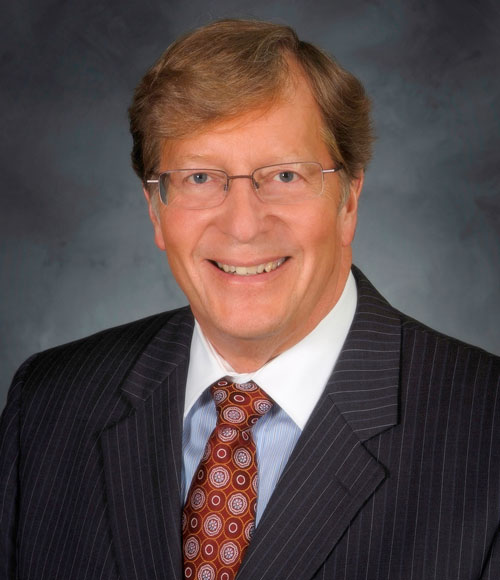As if formulating plans for reopening schools in the midst of a health crisis weren’t challenging enough, complicating matters for school districts is the volatility of a dangerous virus.
That means districts have to be able to switch instruction plans if the pandemic fires up again, and be prepared for the possibility of a COVID-19 outbreak in one of their schools.
For leaders of Kent County’s 20 public school districts, some plans long in the making had to be changed because of shifts in infection rates and other factors. And they may have to be changed again depending on how well the state can tamp down the virus.
‘We’re sharing like crazy, because no one has the time to build all these things in isolation.’
– Heidi Kattula, East Grand Rapids Public Schools

East Grand Rapids Public Schools revised its plan twice as national, state and local guidelines changed. That’s after the district held some 20 virtual sessions seeking public input since last May.
Their superintendent, Heidi Kattula, led development of reopening protocols for the Kent Intermediate Superintendents’ Association Futures Committee last spring. The group worked with local health, business and community leaders and gathered input from across the globe.
“I just think it’s important that parents understand each superintendent is doing their best to design a plan that works best for their district,” Kattula said. “We’re all talking. We’re sharing like crazy, because no one has the time to build all these things in isolation. Because it’s not being done for us.”
Related:
• Ready or not, school year begins as leaders adopt plans to teach, protect students
• How Students are Returning to School
• Local supe works with governor on reopening ‘Roadmap,’ encourages equity in decision-making
Rockford’s Return to Learn plan offering in-person and virtual options was amended by the school board recently to conducting the first 12 days online-only at the recommendation of Superintendent Michael Shibler.

Shibler said he changed his recommendation the weekend before the Aug. 10 board meeting because of rising virus case rates in July and Whitmer’s latest State of Emergency declaration through Sept. 4. Finding it difficult to know for sure how serious the increases were, and getting conflicting feedback from medical professionals prompted him to go virtual-only until Sept. 14, he said.
“It comes down to this: I have the responsibility of the safety of 8,000 students and 1,000 employees,” Shibler said. “I’m going to be very careful in what I recommend.”
With such a rapidly changing virus, he added, “You can’t believe the decision you make today is going to be the right one a month from now.”
Prepared for Anything, but Hopeful
Byron Center Superintendent Kevin Macina said the district is opting to begin school Aug. 31 with a hybrid plan combining in-person with virtual learning, with hopes to shift to fully in-person instruction five days a week on Sept. 28. Students who opt to learn remotely will enroll in BC Virtual.
“I feel good about what Byron Center is doing and obviously there’s a lot of uncertainty,” Macina said.
Amid this uncertainty, districts must both plan out learning AND have safety protocols in place, such as face masks for teachers, and for all students except in grades K-5. (Under the MI Safe Schools Return to School Roadmap, the younger students are not required to wear masks if they remain all day with only their classmates.)
Districts must also work with the Kent County Health Department to test students who show symptoms and, if they test positive, collect information on any others the student came into close contact with.
And if a rise in cases forces the state to close schools again, as it did last March, schools must be prepared for that, too.

“We are prepared for everything and of course do not know exactly what will occur,” said Pete Bush, superintendent of Sparta Area Schools, which is offering a choice of in-person or virtual learning. “But we believe we are as prepared as we can be for whatever happens.”
That “whatever” includes something no one here wants but is likely to happen, based on the experience of other districts around the country.
“We know we will have COVID come to school,” Bush said. “It is a matter of when, not if. Then it will come down to how well we implemented our safety measures, such as did we maintain proper distances to keep others safe and did we report it in a timely fashion.”
Superintendent Mike Weiler, of Kent City Community Schools, echoed the likelihood that districts will see cases. “This virus will come to the schools and we have to be prepared to deal with it.”
Indeed, there have been at least 14 COVID-19 outbreaks at Michigan schools, Bridge magazine reported last week. These were primarily in Southeast Michigan and the Thumb area, according to a report on Michigan Radio. The state’s top health official, Dr. Joneigh Khaldun, said the state will disclose the names of affected schools in a number of weeks, Bridge reported.
Regardless of what the coming school year brings, school leaders say they’re determined to keep students learning and keep students and staff safe, however that must be done.
“This virus will come to the schools and we have to be prepared to deal with it.”
— Mike Weiler, Kent City Community Schools
In Cedar Springs, where students have a choice of classroom and virtual learning when schools open Sept. 8, Superintendent Scott Smith says what he calls this “Apollo 13 moment” may even yield new ways of educating students long-term.
“We’re going to be learning a lot and I think by the end of the year there will be plenty of things that we’ll be able to carry into the future,” Smith said.
“And those things will make us better.”










